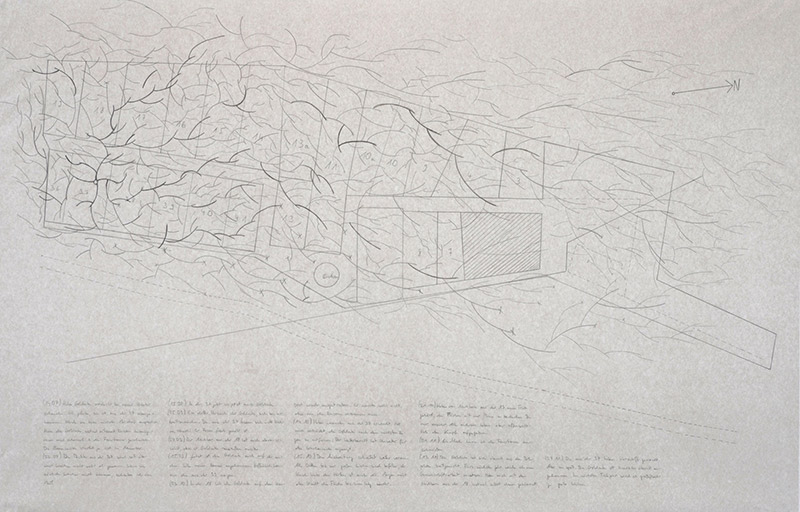
An Imperfect Map (Will Have to Do) Landscape without Horizon is an online exhibition at http://ausstellungen.muthesius-kunsthochschule.de , in which the students Leandra Bigale, Beatrice Born, Ulrich Fischer, Johann Haberlah, Paula König, Merle Voigt, Ziqiu Zhao each contribute one of their works to the Imperfect Map. The exhibition was curated by Lena Johanna Reisner, initiated and supervised by Prof. Antje Majewski.
“The globe is perceived as a ball in a net of latitudes and longitudes”, Michel Serres noted in an essay on the travels of Jules Verne. During the long phase of European expansion, colonial powers – together with their sciences – operated through the paradigm of discovery to expand and create ever more detail in their world maps. Maps, and cartography itself as a form of knowledge production, are not neutral. They have often been historically deployed in order to control space and facilitate the geographic expansion of social and political systems. Equally, throughout the history of modern nation states and military technologies, maps have been connected with both the definition and expansion of property rights. Some artistic works in An Imperfect Map (Will Have to Do) investigate forms of territoriality as well as questions relating to landscapes and their calculability, configuration and control.
Topographic maps and satellite images both project a view from above onto that which they purport to show. This surveying of the surface of the earth is generally conveyed either through a technological lens or an abstraction, which displaces the viewer’s position to a space outside of the frame. In An Imperfect Map (Will Have to Do), this perspective is refused. Setting the map as an object – and its meaning for the political history of the geographic sciences – aside, the artistic works investigate practices of collecting, editing, and recording, as well as assemblage, notation, and speculation. Through painting, drawing, sculpture, photography, and musical processes, aspects of landscapes are brought to the fore that leave the cartographic mode of surveying behind without once bringing a horizon line into the frame.
In her poem A Map to the Next World, from which the title of the exhibition is drawn, the Muscogee poet Joy Harjo speaks of a map that “must be of sand”, that “can’t be read by ordinary light. It must carry fire to the next tribal town, for renewal of spirit.” In Joy Harjo’s poem, the map appears as a fleeting image, one which cannot exist independently of the people who care for the knowledge, the experience, and the sites that it contains.
How might an imperfect map look that is capable of wresting itself away from the global network of latitudinal and longitudinal places and narratives? Perhaps it would generate productive voids and open fields, spaces that withdraw from control, instead telling of forms of belonging and relating. An imperfect map is not an object, but a constant, poetic movement towards orientation in an open terrain.
8 / 2 – 1 / 4 / 2021
Leandra Bigale, Beatrice Born, Ulrich Fischer, Johann Haberlah, Paula König, Merle Voigt, Ziqiu Zhao
Ausstellungen.muthesius-kunsthochschule.de